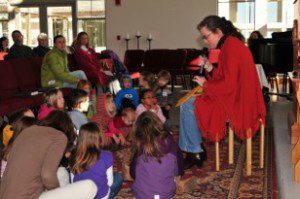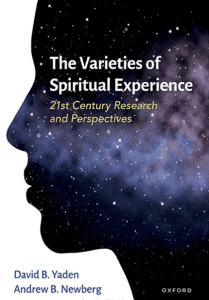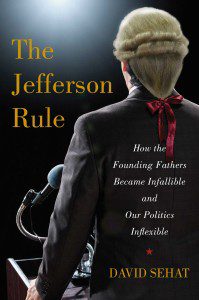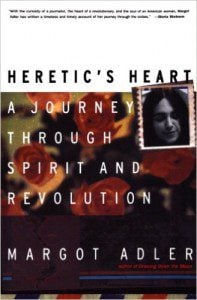Note: This article is a guest post from Lora Powell-Haney, the Director of Religious Education at the Unitarian Universalist Congregation of Frederick, Maryland. It is part of a special Patheos Symposium, Passing on the Faith: Teaching the Next Generation. Read more perspectives here.
Sometimes a life path has its beginning steps in truly mundane places. My current work as a religious educator may very well have begun 11 years ago, on a trip around the Washington Beltway.
My sons, three years old and two months old, were in the backseat as we made our way from home to a play date, listening to NPR, when a story came on about Buddhism and Hinduism. Owen listened carefully, and then asked what reincarnation was. I gave him a simple, brief explanation and then, he asked The Question: Is that really true?
Um, thought this raised-in-the-Methodist-Church-but-unchurched-since-college Mom.
Is it?
My answer, which still pokes my conscience these many years later: “If that is what you believe, then it is true for you.”
“Oh,” replied the three-year-old, “Okay.”
Not long after that, we joined a Unitarian Universalist congregation.
Yes, I was looking for answers, for myself and for my children. I was also looking for a faith community that would welcome questions about all those big things that little ones ask. As my children were being introduced to big ideas about the Spirit of Love and Mystery that some people call God, I found myself asking just as many questions. I found myself wanting to pass this Unitarian Universalist faith along to my children, even as I was learning it.
How do we pass our faith along? I don’t think we can pass our own faith along. All our own life experiences, our own habits of worship or prayer or being in community belong to us and shape how we worship and pray and believe, or don’t. We can, however, live our faith, and pass along those core beliefs and values and practices, or at least, the example of them, to our children.
So often parents in the liberal congregation I serve worry that, by emphasizing one way of worshipping, one religion, their children will be indoctrinated in that one way, when the parents want their children to be free to choose their own faith.
Guess what: they will.
Children will choose what to believe, how to express that belief, and who they want to believe with. That’s called growing up! You did that too, and maybe it was a painful choosing, and maybe it was chaotic, and maybe the struggle made you give up faith and faith community altogether, but you made a choice and may have a different faith than your parents or grandparents, even if you still attend the same church.
That said, in the younger years, children will often mimic the language their grown-ups use about faith. It is perfectly okay, when asked a question you don’t have ready answer for, to say, “That’s a good question. I don’t know the answer; why don’t we find out together?”
(At this point, you are encouraged to contact your Minister or Director of Religious Education (DRE) for resources!)
How much more important does your faith then become to your child, if you share in growing with them? How empowering for your child to have a Big Question taken seriously. That is how you successfully pass along your faith.
Ideas about faith can be introduced in a weekly religious education program, but for the lessons to take root, the ideas must be more fully explored and integrated into daily life, daily practice. Something as simple as pausing before a family meal together (I know: dinner together? How quaint! How vital.), lighting a candle to set this time apart, giving thanks for one good thing that happened that day or for the food on the table and all that made it possible, can be a profound start.
The son who asked that profound question 11 years ago is 14 now, and about to begin high school. I asked him the other day if he and his friends talk about religion or church. He thought for a minute, then shrugged, and said “nah.” That’s okay: we’re going soon to a United Way poverty simulation together. Prepare to have your heart and mind grown wide open, kiddo!
Recommended Books for Curious Grown-ups
Nurturing Children and Youth: A Developmental Guidebook by Tracey Hurd
The Gift of Faith: Tending the Spiritual Lives of Children by Jeanne Harrison Nieuwejaar
How to Bury A Goldfish and other Ceremonies and Celebrations for Everyday Life by Virginia Lang and Louise Nayer
Curricula and Programs
Spirit Play, developed by Nita Penfold and based on Jerome Barryman’s Godly Play (story, wondering questions, and multiple ways to explore the story ideas further)
Tapestry of Faith – Unitarian Universalist lifespan faith development programs and resources













